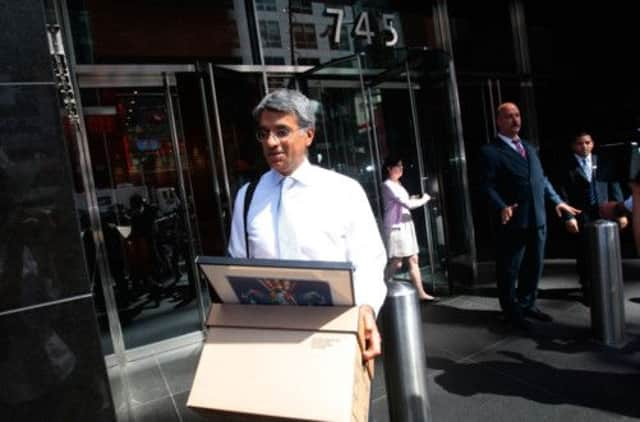John McTernan: A peer’s progressiveness


In the five years since the collapse of Lehman Brothers triggered the Great Recession there has been one question which has haunted progressives the world over: Why has a crisis of capitalism led to a global shift – electorally – to the right?
It’s a thought echoed amongst voters who resent the return of mega bonuses to the very people – the bankers – who nearly crashed the global economy.
Advertisement
Hide AdAdvertisement
Hide AdNot surprising in a world where government bail-outs for companies that were “too big to fail” are financed by cuts to public services. As they say, it’s socialism for the rich and austerity for the rest of us.
One of the greatest weaknesses of the centre-left across the world has been almost a complete inability to process events. To explain what just happened. And to set out a road-map for the future, inflected by experience – of course – but, more importantly, imbued with optimism – the defining characteristic of progressive politics.
There is one answer that is simple, obvious and wrong – that the politics of the “third way” as practised by Clinton, Blair and Gerhard Schroder in Germany saw progressives capitulate completely to conservatism.
At the level of sloganeering, the lived experience of the policies of George W Bush in the US and George Osborne give the lie to that. But there is a more nuanced case to be made about what progressives can – and should – learn from their time in government, and in particular from their successes and failures.
This is the task that David Sainsbury sets himself in his book Progressive Capitalism. Who needs another book about the last Labour government, I hear you say?
Well, in contrast to Damian McBride’s well-publicised memoirs, this one looks to the future not the past.
Sainsbury makes his ambition clear in the book’s subtitle – “How to achieve economic growth, liberty and social justice”. It’s the progressive trifecta.
Few progressives are better positioned to answer this challenge than Lord Sainsbury. He’s a rare beast: a hugely successful businessman in his own right as well as Britain’s longest serving and most influential science minister.
Advertisement
Hide AdAdvertisement
Hide AdAnd a philanthropist on an American scale – he has given £1 billion to his charitable foundation, the Gatsby Trust, since he established it in 1967. In the field of public policy alone he has supported the Institute for Government and the Centre for Cities – two fine examples of do-tanks rather than think-tanks, places where the practical application of ideas is considered and developed.
And now he has shown he can do it himself. Progressive Capitalism is the book the centre-left has been waiting for – a plan, written in clear-eyed prose, based on a hard-headed analysis, rooted in deep experience.
David Sainsbury’s analysis of what went wrong is prompted by his direct personal experience, as a businessman, a minister, and as a stakeholder in a major British company. A hostile bid in 2008 for Sainsbury’s symbolises all that he feels is wrong with modern capitalism.
He writes of the failed bid that the private equity company saw no problems with the existing company or its management: “The only change they proposed to make was to sell off all the properties of the company and replace them with massive debts. Then they would put the company back on the market … And walk away with £1bn of profit.”
Together with the global financial crisis, this shook his faith in the existing system. But as important was the work he did for Gordon Brown – a report on UK government policies on science and technology. Sainsbury titled this Race To The Top – and that could be an alternative title for his book. That study led him to the belief that the role of government is critical in shaping markets – particularly financial markets. This, in turn, informs his rejection of the neo-liberal economic orthodoxy which has driven Western governments since the Opec crisis in the 1970s.
As he observes, in the modern world the Berlin Wall has fallen, China has embraced capitalism and India has relinquished command and control of its economy and at least one-and-a-half billion workers have entered the global workplace. There is no chance that Britain could ever win a race to the bottom.
This much may be a commonplace. Where this book takes off is in policy advice. Here Sainsbury distinguishes himself brilliantly from most work in this area. He reflects sardonically that “what is [currently] described in government as policy-making is nothing of the sort, being simply the production of documents which describe what needs to be done to implement a minister’s policies.” Bullseye.
His solution? An enabling state, market-supporting not market-directing, investing in skills, education, innovation and a knowledge economy more broadly.
Advertisement
Hide AdAdvertisement
Hide AdHe points out that, paradoxically, globalisation has made geography less important – by abolishing distance through the internet – and yet more important; look at how IT development has centred round a handful of places.
So, work out how you can be the best place for business to be, locate and grow. That’s about the institutional framework. So Sainsbury argues for changes in the financial system; but also for changes to universities – and how knowledge becomes innovation, then patents and then products.
In the end, what’s refreshing about David Sainsbury’s thinking is his belief we can do better. He believes in government and in business. He believes in logic and in evidence. He believes in the future. This book is that oxymoron – a must-read page-turner by a former minister. Buy it. Read it. Do it.